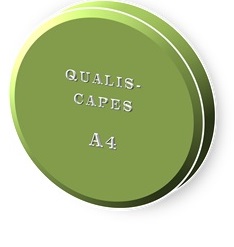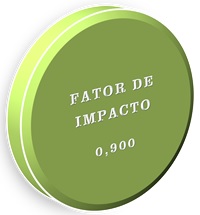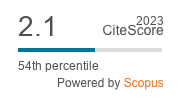DISTRIBUTION OF A LEAF VEIN GALL IN Caryocar brasiliense (CARYOCARACEAE) TREE
Keywords:
Savanna. Insect distribution. Leaf galls. Brazil.Abstract
We studied the spatial distribution of a galling insect species that induces galls on the leaf veins of Caryocar brasiliense Camb. (Caryocaraceae) trees. Galls/leaflet predominantly occurred at the northern (1.06) tree slope, with decreasing number at the western (0.92), eastern (0.65), and southern (0.60) slopes. Higher number of galls/leaflet were found in the interior of the tree crown, i.e., on the proximal region (1.99) of the stems compared to the terminal portion (1.26). On the other hand, the average number of vein galls/leaflet did not differ statistically among the three leaflets of C. brasiliense (right = 0.79, central = 0.78, left = 0.84). Galls/leaflet were most abundant on the distal (0.46) and median (0.52) regions compared to the proximal (0.24) longitudinal region of the leaflet. This gall/leaflet insect was most frequent on the central (1.01) portion than in the leaf margin (0.05) or near mid vein (0.14) on transversal regions of a leaflet.Downloads
Downloads
Published
Issue
Section
License
Os Autores que publicam na Revista Caatinga concordam com os seguintes termos:
a) Os Autores mantêm os direitos autorais e concedem à revista o direito de primeira publicação, com o trabalho simultaneamente licenciado sob a Licença Creative Commons do tipo atribuição CC-BY, para todo o conteúdo do periódico, exceto onde estiver identificado, que permite o compartilhamento do trabalho com reconhecimento da autoria e publicação inicial nesta revista, sem fins comerciais.
b) Os Autores têm autorização para distribuição não-exclusiva da versão do trabalho publicada nesta revista (ex.: publicar em repositório institucional ou como capítulo de livro), com reconhecimento de autoria e publicação inicial nesta revista.
c) Os Autores têm permissão e são estimulados a publicar e distribuir seu trabalho online (ex.: em repositórios institucionais ou na sua página pessoal) a qualquer ponto antes ou durante o processo editorial, já que isso pode gerar alterações produtivas, bem como aumentar o impacto e a citação do trabalho publicado (Veja O Efeito do Acesso Livre).







